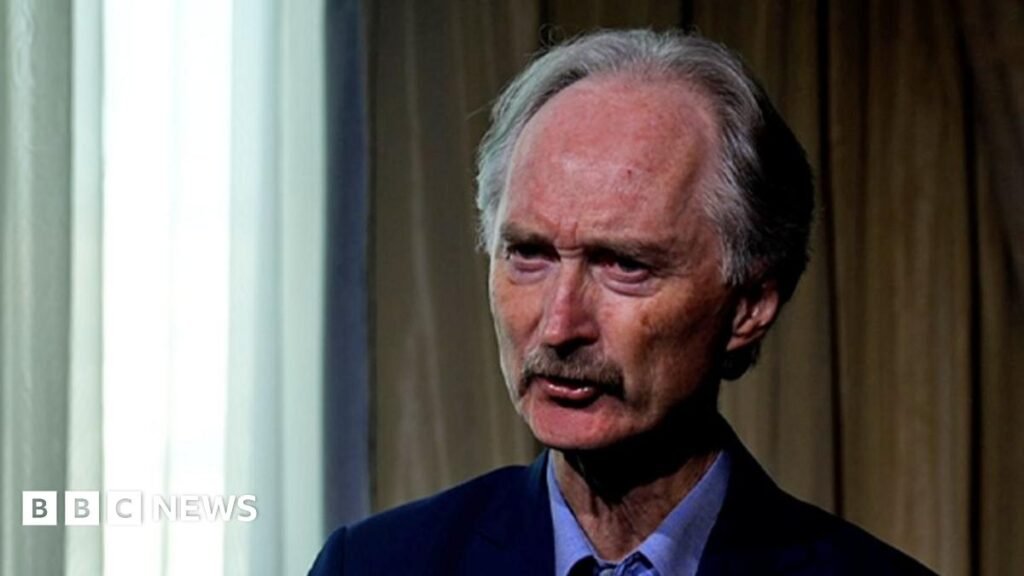As for Syria’s neighbours, Mr Pedersen said Israel’s actions since the fall of Assad were “very irresponsible”.
After the 1967 Middle East War, Israel occupied and later annexed an area of southern Syria known as the Golan Heights. Most other states, except the United States, consider the Golans an occupied territory.
Israel’s current bombing campaign against Syrian military targets and the occupation of more Syrian territory in the demilitarized buffer zone of the Golan Heights and surrounding areas, Mr. Pedersen said, “pose a danger to the future of Syria, and these activities must be stopped immediately.”
“There is no reason for Israel to occupy new Syrian territory. Galans are already occupied. They do not need new land to occupy. So we have to see that Israel also acts in a way that does not destabilize this very, very delicate transition process,” he added.
Mr. Pedersen is also concerned about the complex web of power in northern Syria.
Turkey has a well-established relationship with HTS. It has troops in the northwest, as well as a militia known as the Syrian National Army (SNA), made up of rebel groups it supports.
Since Assad was ousted, the SNA has attacked another force in northern Syria, a Kurdish-led militia alliance called the US-backed Syrian Democratic Forces (SDF).
Mr Pedersen said it was in Turkey’s interest to follow certain key principles along with other foreign powers.
“What do we all need to see in Syria now? We need to see stability. We need to see that there are no new populations moving. We need to see that people are not fleeing Syria as refugees. We need to see that refugees return, that… internally displaced persons can return to their homes.”

